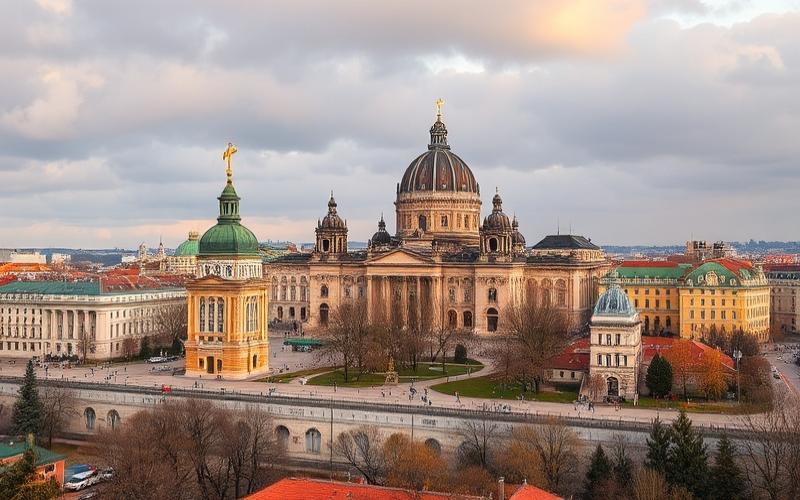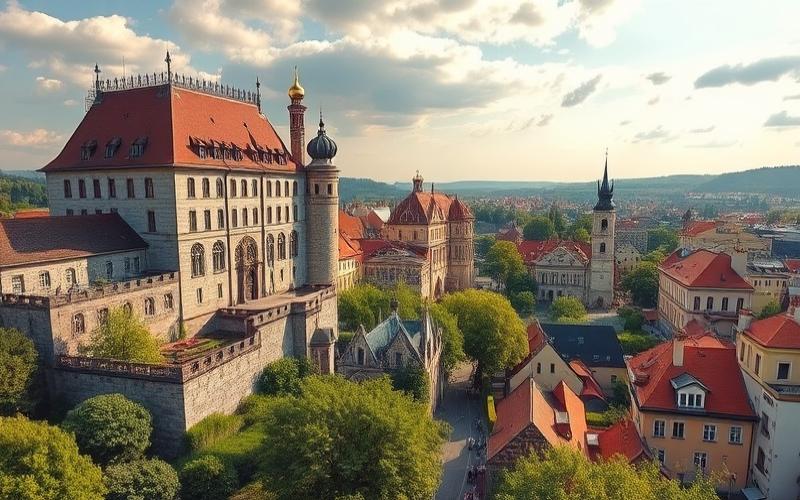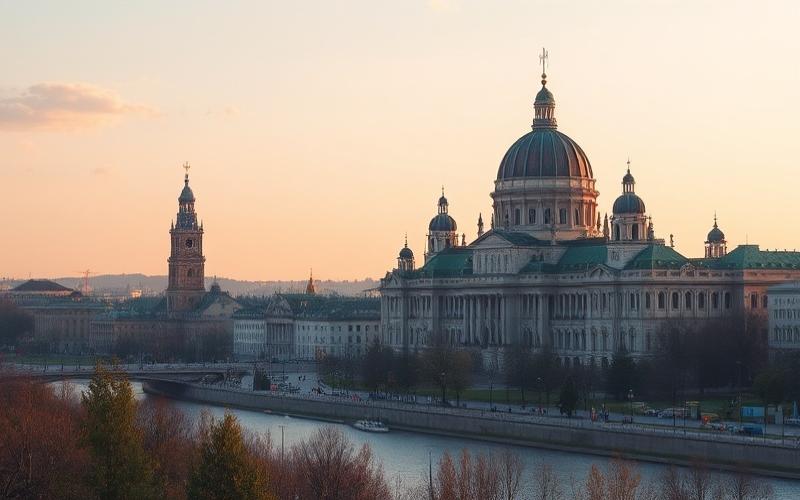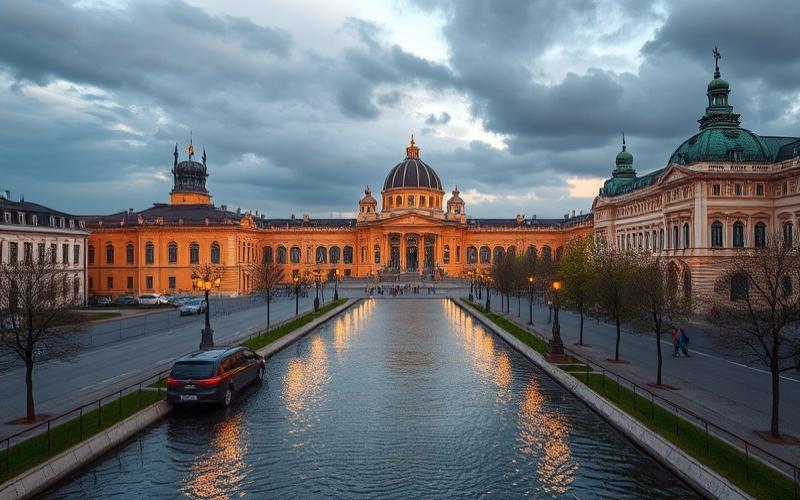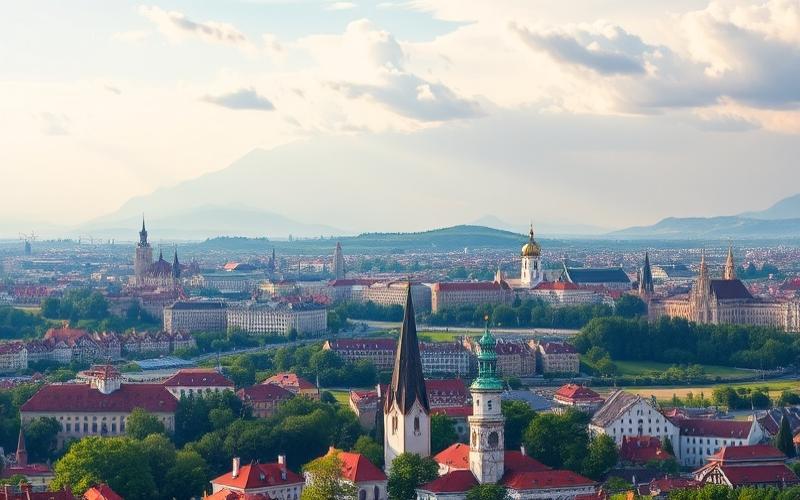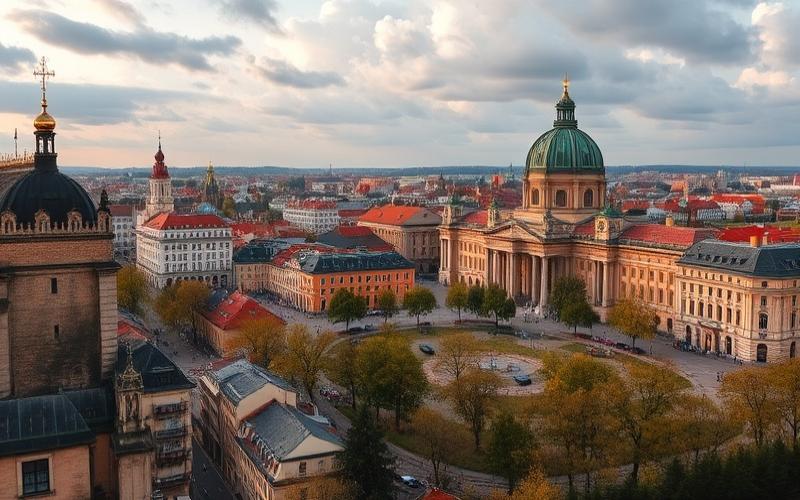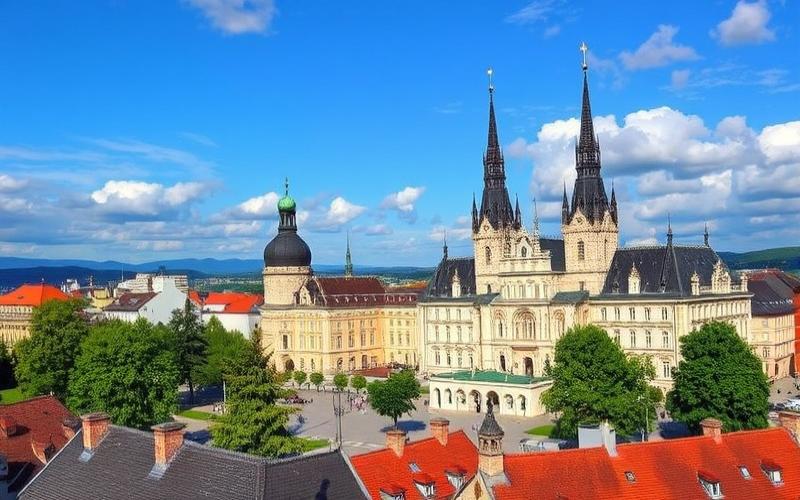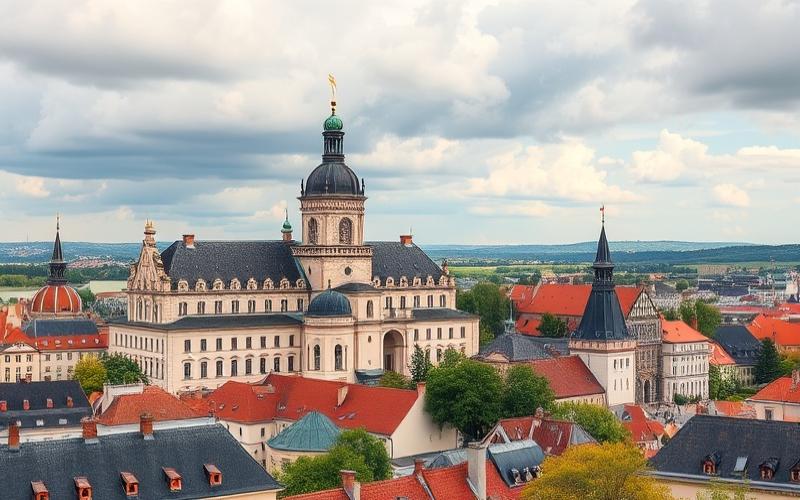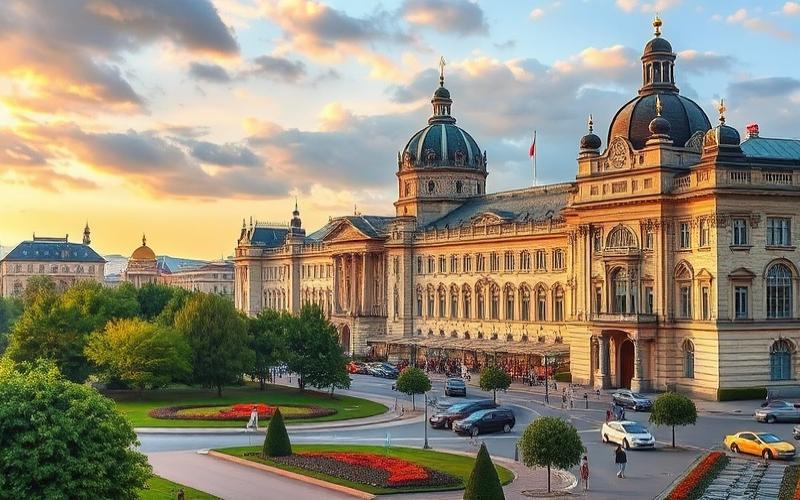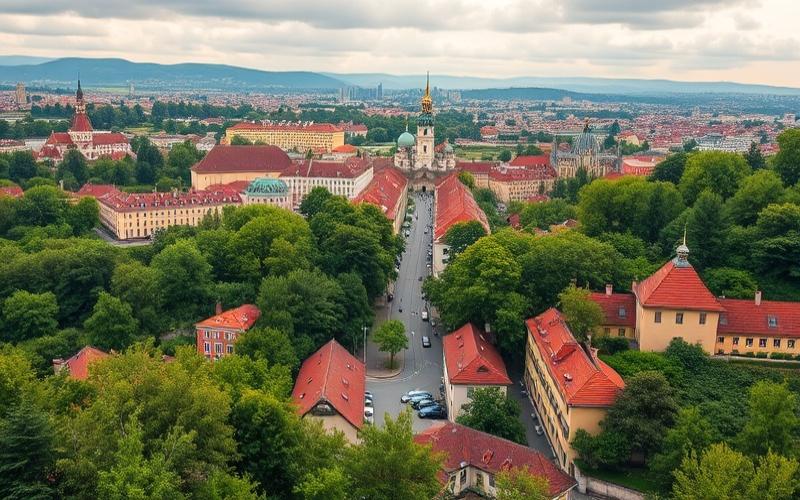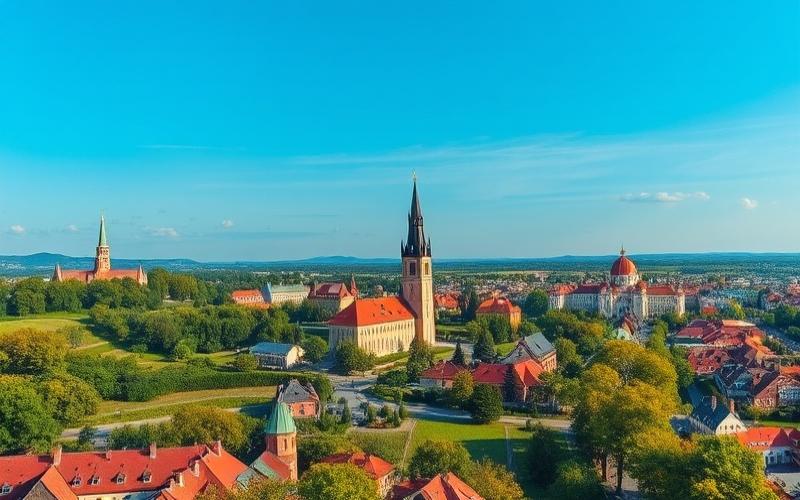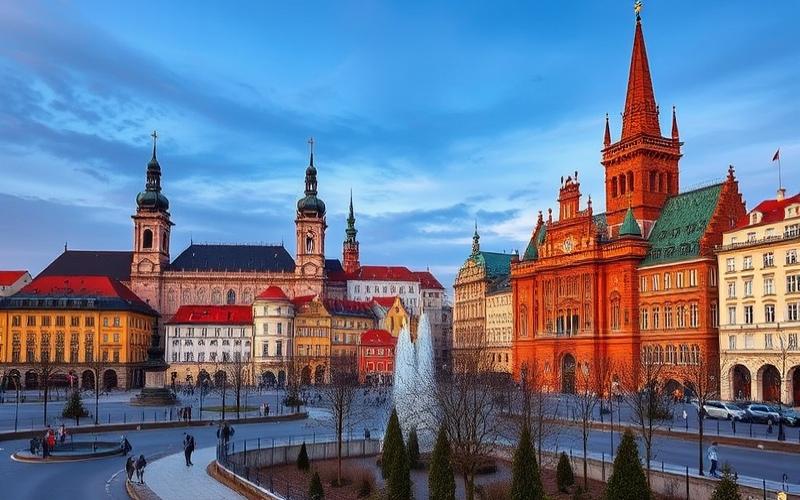
 Published on and written by Cyril Jarnias
Published on and written by Cyril Jarnias
Exploring the cost of living in Poland for expatriates reveals a fascinating mosaic of varied expenses, blending the charms of local culture with crucial economic considerations.
Sometimes considered a more affordable European destination, Poland offers surprises in housing, food, and transportation that can compete with its neighbors.
For an expatriate, navigating through these financial aspects becomes a delicate balance between budget and desired lifestyle.
By discovering how these costs compare to other countries, one can grasp the true value of a rewarding life in Poland, while preparing the ground for successful integration into a new community.
Understanding the Cost of Living in Poland for Expatriates
Cost of Living Comparison Between Poland and Other European Countries
| Expense Category | Poland (Warsaw, 2025) | France (Paris, 2025) | Germany (Berlin, 2025) |
|---|---|---|---|
| 1-Bedroom Apartment Downtown | €688–900 | €1200–1600 | €1100–1400 |
| 3-Bedroom Apartment Downtown | €1147 | €2500–3200 | €2200–2700 |
| Food (per person/month) | €200–250 | €300–400 | €350–450 |
| Transportation (Monthly Pass) | €50 | €75–85 | €80–100 |
| Entertainment (Cinema, Fitness, etc.) | €100–150 | €200–300 | €180–250 |
| Total Monthly Budget (Single Person) | €1100–1400 | €1600–1700 | €1700–1900 |
The cost of living in Poland is on average 25 to 33% lower than in France or Germany, particularly for housing and entertainment.
Analysis of the Polish Real Estate Market (Warsaw, Krakow, Wroclaw)
| City | 1-Bedroom Downtown | 3-Bedroom Downtown | 1-Bedroom Outside Center | 3-Bedroom Outside Center |
|---|---|---|---|---|
| Warsaw | €700–900 | €1200–1600 | €500–700 | €900–1100 |
| Krakow | €600–850 | €1000–1400 | €450–600 | €800–1000 |
| Wroclaw | €600–800 | €950–1300 | €400–550 | €750–950 |
- Prices are higher in Warsaw, followed by Krakow then Wroclaw.
- The rental market remains tight in city centers, but supply is abundant.
- Expatriates often benefit from new or renovated housing, meeting European standards.
Local Salaries and Purchasing Power
- Average Monthly Net Salary in Poland: €1400 (5939 PLN)
- Net Minimum Wage (2025): 3500 PLN (~€825)
- In France, the average salary exceeds €2000, in Germany €2500
- Purchasing Power: about 29% lower than in France for a local employee, but highly advantageous for an expatriate paid in foreign currency.
Public and Private Services
- Healthcare:
- Accessible public system, but sometimes long wait times.
- Many private clinics, consultation cost: €20–50.
- Private health insurance recommended for expatriates.
- Education:
- Free public system, instruction in Polish.
- Wide choice of international schools in major cities (fees: €6000–12000 / year).
- Private daycare: €200–350 / month.
Economic Variables Impacting the Cost of Living
- Inflation (2024–2025): 6–8%, notable increase in food and energy.
- PLN/€ Exchange Rate:
- 1 PLN ≈ €0.236
- Recent fluctuations, impacting expenses for expatriates paid in euros.
Testimonials and Practical Advice from Expatriates
“With a French salary, I live very comfortably in Warsaw. I can afford outings, travel, and savings. However, be aware that prices in central neighborhoods and for imported products can rise quickly.”
“Private healthcare is affordable and efficient. For daily life, it’s better to learn some basics of Polish, even though many young people speak English.”
Practical Tips:
- Prefer outlying neighborhoods to reduce rent.
- Use public transportation, which is well-developed and inexpensive.
- Plan a higher entertainment budget if you wish to maintain a Western lifestyle.
- Compare health insurance offers before leaving.
- Consider the volatility of the zloty for long-term budget management.
The main advantage for the expatriate: a high standard of living for a controlled budget, especially if remuneration is in euros or international currencies.
Good to Know:
The cost of living in Poland generally remains lower than in many Western European countries, although in Warsaw, rent can represent a significant part of expatriates’ monthly budget; moreover, public healthcare services are often free, but private care involves additional costs.
Concrete Examples of Prices in Poland: Comparison with Other Destinations
Food
| Product or Service | Warsaw (Poland) | Paris (France) | Berlin (Germany) |
|---|---|---|---|
| Bread (500g) | €0.80 | €1.20 | €1.00 |
| Milk (1L) | €0.70 | €1.10 | €0.90 |
| Eggs (12 units) | €2.50 | €3.80 | €3.20 |
| Potatoes (1kg) | €0.60 | €1.40 | €0.90 |
Concrete example: A basic weekly grocery basket costs about 40 to 60% less in Poland than in France or Germany. Local supermarkets offer fresh products at very competitive prices compared to French or German hypermarkets.
Housing
Average Monthly Rent for a 2-Room Apartment in the City Center
- Warsaw: about €550–600
- Paris: about €1300–1500
- Berlin: about €900–1100
“After living in Paris then Berlin for several years before moving to Krakow as a digital nomad expatriate, I can say the difference in rent is impressive! For a modern, well-located apartment, I pay half the price here that I paid in Berlin.” — anonymous testimony collected on expatriate forums.
In secondary Polish cities like Łódź or Katowice, rent easily falls below €300/month, whereas you would need at least double that budget in a comparable French or German city.
Transportation
Monthly Urban Public Transport Pass
- Warsaw: ~€25
- Barcelona: ~€40
- Paris Île-de-France Navigo pass: ~€86
- London Oyster card central zone: ~£156 (~€180)
The Polish network is modern and efficient for a cost significantly lower than major European metropolises. A single ticket remains around 1–2 PLN, much less than in London where it easily exceeds £6 per trip.
Entertainment and Outings
Standard Restaurant Meal for Two Without Alcohol
- Warsaw/Krakow: between €15 and €30
- Paris/Berlin/London/Barcelona: between €35 and €70 depending on the restaurant’s range.
A coffee in a trendy bar generally costs around €2 in Poland compared to €3–4 elsewhere; museum entry ranges between €4 and €7 compared to €10–15 in neighboring capitals.
“In Wrocław as a British expatriate for three years now, I’ve discovered an unsuspected purchasing power especially in cultural entertainment, cinemas, theaters, concerts… You can fully enjoy without going broke, whereas every outing seemed calculated during my student years in London.” — testimony collected via Facebook group “Expats in Poland”.
Good to Know:
In Poland, the average rent for a downtown apartment is about €700, almost half that of Berlin; a meal in a restaurant costs 20% less than in London, and a monthly public transport pass is three times cheaper than in Barcelona.
What Budget to Plan for Expatriation to Poland?
Housing
| City | Downtown Apartment (€/month) | Suburban Apartment (€/month) |
|---|---|---|
| Warsaw | 900 – 1,200 | 600 – 850 |
| Krakow | 800 – 1,100 | 550 – 750 |
| Gdansk | 700 – 1,000 | 500 – 700 |
- Rents are significantly more affordable than in France, where a similar apartment downtown costs on average €1,750.
- Purchase prices per square meter vary: €3,000 in Poland vs. €5,800 in France.
- Gaps between center and periphery remain marked, especially in Warsaw and Krakow.
Transportation
- Monthly public transport pass (bus, tram, metro): €25–30 depending on the city.
- Single ticket: €1–1.20.
- Carpooling (Blablacar, etc.): €5–15 for an intercity trip.
- Purchase of a used car: €2,500 – €7,000, annual insurance around €300–400.
- Major Polish cities have an efficient and economical network, making a car non-essential for urban life.
Food Expenses
- Monthly supermarket basket (basic products): €120–180.
- Meal at a traditional restaurant: €7–12.
- Fast food/quick meal: €4–6.
- Markets and small shops offer local products (potatoes, mushrooms, eggs, dairy) often cheaper than imported or processed products.
- Dining out remains very affordable compared to France (equivalent meal often 30–40% cheaper).
Healthcare
- For EU nationals: access to public healthcare via the European Health Insurance Card, but partial coverage (general practitioner consultation: €2–10 if outside public pathway).
- Private health insurance recommended for expatriates: €20–60/month depending on coverage.
- Private doctor consultation: €20–40.
- Private insurance offers better access and shorter wait times.
Additional Expenses
- Gym membership: €20–35/month.
- Cinema: €5–8 per session.
- Museums and exhibitions: €2–6 entry.
- Outings (bars, clubs): drink from €2, club entry €5–10.
- Education (private/international schools): €300–800/month.
- Entertainment, culture, and sports remain overall 30 to 50% cheaper than in France.
Poland/France Comparison (Main Expenses)
| Expense Category | Poland (€/month) | France (€/month) | Difference |
|---|---|---|---|
| Housing (Center) | 900 – 1,200 | 1,750 | –35 to –50% |
| Transportation | 25 – 30 | 75 | –60% |
| Food | 150 | 250 | –40% |
| Healthcare (Private) | 40 | 70 | –40% |
| Entertainment/Sports | 50 – 80 | 120 – 200 | –50% |
Tips to Optimize Your Budget in Poland
- Prefer renting in the suburbs or co-living to reduce housing costs.
- Use monthly public transport passes and take advantage of student/youth discounts.
- Shop at markets and favor local seasonal products.
- Opt for local health insurance suited to your profile to avoid extra costs.
- Take advantage of numerous free or discounted cultural offers (museums, concerts, municipal events).
Savings or Financial Gains for Expatriates
- The lower cost of living allows for significant savings, especially if receiving an international or French salary.
- Real estate investment opportunities remain attractive, particularly in secondary cities.
- Some expatriates may benefit from tax advantages or relocation incentives depending on their status and sector of activity.
To remember: The expatriation budget in Poland is generally 30 to 50% lower than in France for comparable services, allowing for a higher quality of life and increased savings capacity for most expatriate profiles.
Good to Know:
Housing costs in Poland range between €600 and €1200 per month in Warsaw, €500 to €1000 in Krakow, and €400 to €800 in Gdansk, with lower prices in the suburbs; public transportation is affordable, about €25 per month, while a full grocery shopping can cost about €200 per month by favoring local products. Private health insurance is recommended, about €50 per month, and entertainment or cultural activities are often cheaper than in France, allowing for overall savings of 10 to 20%.
Disclaimer: The information provided on this website is for informational purposes only and does not constitute financial, legal, or professional advice. We encourage you to consult qualified experts before making any investment, real estate, or expatriation decisions. Although we strive to maintain up-to-date and accurate information, we do not guarantee the completeness, accuracy, or timeliness of the proposed content. As investment and expatriation involve risks, we disclaim any liability for potential losses or damages arising from the use of this site. Your use of this site confirms your acceptance of these terms and your understanding of the associated risks.



